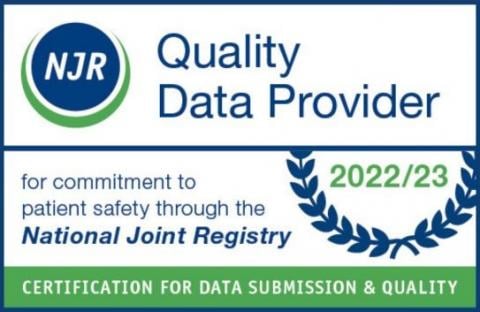
Feeling tired all the time? It might be more than just a busy week. Most people put persistent tiredness down to stress, poor sleep or a hectic schedule. But when that sluggishness doesn’t shift, no matter how many early nights or cups of coffee, you might be dealing with something deeper. Anaemia, a common yet often overlooked condition, can sap your energy, dull your focus, and leave you feeling constantly drained.
We explore the lesser-known causes of anaemia, including how digestive disorders can silently interfere with your body’s ability to absorb essential nutrients. From the red flags to watch for, to when to seek help and who to see – this article offers clear, practical insight into a condition that affects far more than just energy levels.
What is anaemia?
Anaemia happens when the body doesn’t have enough healthy red blood cells or haemoglobin to carry oxygen effectively. This reduced oxygen delivery can leave you feeling physically and mentally fatigued, even after a good night’s sleep.
There are several types of anaemia, but iron deficiency anaemia is by far the most common. Other forms include vitamin B12 or folate deficiency anaemia, anaemia of chronic disease, and more complex haematological conditions such as aplastic anaemia or haemolytic anaemia.
The key thing to understand is that anaemia isn’t a diagnosis in itself – it’s a symptom of something else going on in the body. Pinpointing the cause is essential for proper treatment.
Common (and surprising) symptoms of anaemia
Anaemia can creep in gradually, making it easy to dismiss the signs until they become more severe. Some symptoms to look out for include:
- Constant fatigue or low energy
- Pale or yellowish skin
- Shortness of breath
- Dizziness or light-headedness
- Heart palpitations
- Cold hands and feet
- Brittle nails or hair loss
- Headaches
- Difficulty concentrating
Some people with iron deficiency also develop unusual cravings for non-food items – a symptom known as pica, such as chewing of ice, or consumption of earth or clay.
If you are nodding along to several of these symptoms, it may be time to dig deeper than your daily routine.
When the problem starts in the gut
While iron deficiency can occur due to dietary gaps, many people with anaemia are eating well. So what’s causing the shortfall?
The answer often lies in the digestive system. Several gastrointestinal conditions can reduce the body’s ability to absorb iron, B12, or folate, or lead to chronic blood loss:
- Coeliac disease: An autoimmune reaction to gluten damages the lining of the small intestine, impairing nutrient absorption. Anaemia is one of the most common signs, especially in undiagnosed cases.
- Inflammatory bowel disease (IBD): Conditions like Crohn’s disease and ulcerative colitis can cause both inflammation and gastrointestinal bleeding, leading to significant iron loss as well as reduced iron absorption.
- Atrophic gastritis or Helicobacter pylori infection: These can interfere with the stomach's acid levels, reducing iron and B12 absorption.
- Gastrointestinal bleeding: Sometimes caused by ulcers, polyps or even bowel cancer. The bleeding may be so slight it goes unnoticed, but over time it can lead to anaemia.
- Bowel surgery: Operations that remove or bypass parts of the stomach or intestine may limit the body’s ability to take in nutrients.
In these cases, supplements alone are unlikely to resolve the issue – accurate diagnosis and specialist treatment are essential to uncover and address the underlying cause effectively.
"Many people are surprised to learn that a healthy diet alone isn’t always enough to prevent anaemia. Conditions such as coeliac disease, IBD, or even subtle bleeding from ulcers or polyps can silently disrupt the gut’s ability to absorb iron and other essential nutrients. Anaemia is often the first clue that something is amiss in the digestive tract. When it doesn’t respond to supplements, it may signal chronic blood loss, malabsorption, or inflammation within the gut. As gastroenterologists, we investigate and treat these underlying causes to restore your nutrient levels, energy, and overall wellbeing."
Dr Rishi Goel, Consultant Gastroenterologist at New Victoria Hospital
Beyond the gut: haematological causes of anaemia
While digestive issues are a common culprit, many cases of anaemia stem from blood-related conditions requiring specialised care. Key causes include:
- Bone marrow dysfunction: The bone marrow is the factory that produces all blood cells, including red cells. Production issues, such as aplastic anaemia (failed blood cell production) or myelodysplastic syndromes can cause anaemia. Although uncommon, anaemia can occur when malignancies – such as bone marrow cancers or metastatic tumours – invade the marrow and disrupt normal blood cell production.
- Haemolytic disorders: Red blood cells are destroyed prematurely due to autoimmune diseases, mechanical damage (e.g., leaky heart valves), or inherited conditions like sickle cell anaemia and thalassemia.
- Chronic diseases: Kidney failure reduces erythropoietin production, while autoimmune disorders (e.g., rheumatoid arthritis) trigger inflammation that suppresses red blood cell formation.
- Medications or treatments: Chemotherapy, antibiotics, or anticonvulsants may suppress bone marrow activity or induce immune-mediated red cell destruction
When to see a doctor – and who to see
If you’re experiencing ongoing fatigue, shortness of breath or any of the symptoms listed earlier, it’s a good idea to speak to your GP or a specialist. But with so many possible causes, how do you know which type of doctor to see?
At New Victoria Hospital, patients can access both Consultant Haematologists and Consultant Gastroenterologists, who can collaborate for a comprehensive diagnosis and treatment plan.
When to consult a Haematology Consultant
“Red cells are ebullient little bodies packed with chutzpah (haemoglobin), carrying oxygen to all tissues. Though common causes of anaemia, such as iron deficiency, can be diagnosed in the primary care setting, several causes need ‘Sherlock-Holming’ by a haematologist. Red cells under a microscope often talk to a haematologist, rendering their stories – pouring over a blood smear gives us a good insight into red cell health. With a wide differential diagnosis, it often takes the acumen of a haematologist to navigate through the causes of anaemia and management thereof."
Dr Vishal Jayakar, Consultant Haematologist at New Victoria Hospital
A Haematologist specialises in blood disorders. You should consider booking a consultation if you have:
- Persistent fatigue, weakness, or light-headedness not linked to diet or sleep.
- Easy bruising, frequent nosebleeds, or unusually heavy periods.
- Recurrent infections like colds and UTIs that are slow to clear.
- Swollen lymph nodes in neck, armpits, or groin, lasting weeks without infection.
- Unexplained fevers, night sweats, or unintended weight loss.
- Persistent bone pain, e.g., in your back, ribs, or hips.
- Abnormal blood test results, such as low haemoglobin or unusual white/red cell counts.
When to consult a Gastroenterology Consultant
A Gastroenterologist focuses on the digestive system. You should seek specialist care if you experience:
- Ongoing gastrointestinal symptoms such as abdominal pain, bloating, or nausea.
- Blood in your stool (bright red, dark, or tar-like) or vomiting blood.
- Persistent diarrhoea, constipation, or a noticeable change in bowel habits.
- Difficulty swallowing, chronic heartburn, or acid reflux.
- Unexplained weight loss or poor appetite.
- A family history of gastrointestinal cancers.
- Iron-deficiency anaemia, where no external bleeding is found.
These signs could indicate gastrointestinal causes of anaemia, such as coeliac disease, inflammatory bowel disease (IBD), peptic ulcers, or undiagnosed bleeding from the stomach or intestines.
The importance of early diagnosis
Untreated anaemia doesn’t just leave you tired – it can impact your heart, brain, and immune system. It can also be the first clue to more serious underlying conditions that require medical attention.
If you suspect something’s not quite right, don’t wait for it to get worse! A full blood count is a simple first step, and further tests can help guide the way forward. With timely treatment, most people see a marked improvement in their energy, focus and overall wellbeing.
Takeaway: don’t just power through
It’s easy to chalk up tiredness to modern life. But when fatigue becomes constant, or you’re noticing other signs like shortness of breath or paleness, it is worth paying attention.
Anaemia can be a straightforward fix, or it can be a sign of something deeper. The key is knowing where to look. Whether the issue stems from the blood itself or the gut’s ability to support it, getting the right specialist care makes all the difference.
At New Victoria Hospital, you can book an appointment directly with Haematology or Gastroenterology Consultants without a referral. With rapid access to diagnostics and personalised care, our Consultants are here to help you get back to feeling your best.













